
The BookBlast® Podcast is for writers, translators and curious readers who want a behind-the-scenes snapshot of the world of literature and translation.
BookBlast® Diary launched in 2015 to celebrate independent thinking and international literature.
BookBlast® is a registered trademark. Find us on instagram @bookblastofficial
Episodes
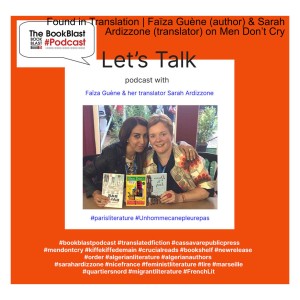
Thursday Sep 23, 2021
Thursday Sep 23, 2021
Faïza Guène writes about normal people living in urban tower block estates surrounding cities like Paris, Lyon, and Marseille. Her first novel, Kiffe kiffe demain, published in England under the title Just Like Tomorrow, sold over 400,000 copies when it came out and has been translated into 26 different languages. She was just nineteen.
Tune in to hear her lively conversation with translator of sixteen years, Sarah Ardizzone, and host Georgia de Chamberet, about inner city school life, the impact of Black Lives Matter, the 2024 Olympic Games, translating argot and Arabic-influenced backslang, and all about her latest novel out in English, Men Don’t Cry (Cassava Republic), in which quirky family antics and familial pettiness make for much hilarity: everyone can relate to it.
Produced by Simon James

Friday Apr 09, 2021
Interview with Natasha Lehrer, translator of Consent by Vanessa Springora
Friday Apr 09, 2021
Friday Apr 09, 2021
Vanessa Springora’s memoir, Consent, became an instant, international literary sensation when it was published in France in January 2020. Her beautifully written, intimate and powerful description of her relationship in the mid-1980s with the French author Gabriel Matzneff, when she was fourteen and he fifty, is a beautifully written universal #MeToo story of power, manipulation, trauma, resilience and healing.
Translator, Natasha Lehrer, and Georgia de Chamberet, discuss libertarian attitudes and French culture; the trouble with Feminism in France; literary name-and-shame public revelations leading to the downfall of powerful sexual abusers; and more.
Presented by Georgia de Chamberet | Produced by BookBlast®
© the artists care of bookblast ltd
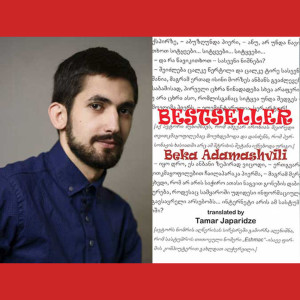
Thursday Nov 05, 2020
Thursday Nov 05, 2020
As a reminder of what entertaining, inoffensive satire constitutes, pick up a copy of Bestseller by Georgian trailblazer, Beka Adamashvili, deftly translated by Tamar Japaridze, published by Dedalus Books.
A blogger, screenwriter and creative director at an advertising company, Adamashvili’s mischievous sense of humor and deep knowledge of world literature, combined with marketing nous, sharpen his pen. Multiple allusions from literary classics are woven into his postmodern narrative as he sends up digimodernism and the shallowness of the desire for fame. Dante, Conan Doyle, Samuel Beckett, George Orwell and other literary heavyweights rebel against the author. Bestseller pokes fun at literary pretentiousness, humbug and bookish aspirations with wit and verve.
Presented by Georgia de Chamberet | Produced by Rupert Such
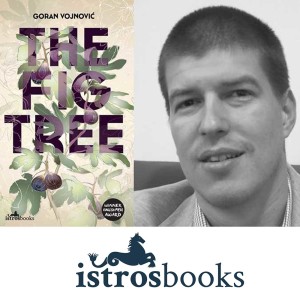
Tuesday Oct 20, 2020
Tuesday Oct 20, 2020
"In The Fig Tree, deftly translated by Olivia Hellewell, Goran Vojnović portrays three generations of a family whose lives are marked by the disintegration of Yugoslavia and its brutal aftermath. It is a remarkable portrait of a country’s fragmentation and a family’s fracture." Lucy Popescu, The BookBlast Diary
Presented by Georgia de Chamberet | Produced by Rupert Such
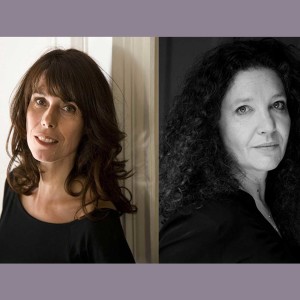
Thursday Sep 24, 2020
Thursday Sep 24, 2020
In THE WHITE DRESS, Nathalie Léger tells the story of Pippa Bacca, a thirty-three-year-old Italian feminist performance artist who decided to hitchhike from Milan to Jerusalem wearing a white wedding dress to symbolise “marriage between different peoples and nations.” Through her intense examination of Bacca’s final work and of the often polarised public reaction to the role of women in art, Léger also compellingly addresses her own conflicted relationship with her elderly mother.
Does Bacca’s work actually need to be translated in a narrative form. Like any visual artist, it’s there in the performative act. Which makes one ask is all communication translation or indeed translatable?
In your view, what makes a good translator and how can translation change perceptions of our world?
Discover the answers to these questions and more, as Lucy Popescu interviews award-winning translator Natasha Lehrer who has translated two of Léger’s books.
Presented by Lucy Popescu | Produced by Rupert Such
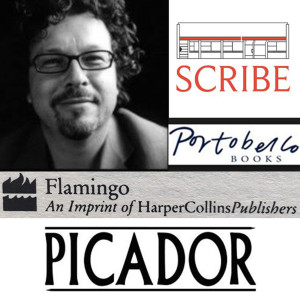
Thursday Sep 17, 2020
Thursday Sep 17, 2020
Georgia de Chamberet interviews Philip Gwyn Jones who has extensive experience at the heart of literary publishing having started his career at the late, lamented Flamingo imprint at HarperCollins, then founding Portobello Books and merging it with Granta Books, moving on to Scribe, and since June this year, heading up the Picador imprint at Macmillan.
“You were the first British editor to offer a book contract to Jenny Erpenbeck, Ove Knausgaard, Jhumpa Lahiri, Arundhati Roy, Kathryn Schulz and Zadie Smith, amongst others. Tell us about some of your recent discoveries published by Scribe and what makes each one so special.”
“Tommy Wieringa - author of The Blessed Rita which you have published in Spring this year - is one of europe’s biggest selling authors. What is his magic ingredient?”
“As voices from the margins have become louder, influencing the political mainstream, how has fiction written from an “outsider” perspective evolved and increasingly become an identifiable genre in publishing since you began your career publishing translations?”
Presented by Georgia de Chamberet | Produced by Rupert Such
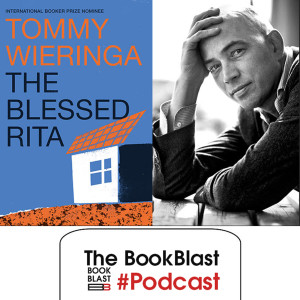
Thursday Sep 17, 2020
Thursday Sep 17, 2020
Lucy Popescu interviews Tommy Wieringa and his translator from Dutch, Sam Garrett. Wieringa's novel The Death of Murat Idrissi was nominated for the International Booker Prize in 2019. In 2018 he won the Bookspot Literatuurprijs for his novel De heilige Rita, The Blessed Rita, published this year by Scribe UK. It is a compelling portrait of the forgotten and Wieringa makes a strong case for empathy with those living on the margins of society.
“Did you grow up in a rural or urban community?”
“What draws you to write about men on the margins?”
“Tommy, regarding empathy for your characters and their situations, by writing about flawed characters you remind us of our shared humanity. Was that your intention?”
Hear the answers to these questions and more in this insightful exclusive interview.
Presented by Lucy Popescu | Produced by Rupert Such

Thursday Sep 10, 2020
Thursday Sep 10, 2020
Interview avec le romancier, essayiste, critique et poète marocain le plus vendu au niveau international, Tahar Ben Jelloun, au sujet de son livre, Le Terrorisme explique à nos enfants. Cette semaine les complices présumés sont devant le tribunal de Paris pour les attentats de janvier 2015.
Pouvez-vous décrire brièvement à nos auditeurs anglophones les racines du terrorisme en France et quelles sont les objectifs présumés des terroristes?
Comment pensez vous que l’État pourrait contrôler ses forces de police et leurs «bavures»? Est il possible que les consequences toxiques du colonialisme puissent être mieux reconnues pour réévaluer le récit publique sur l'islam et la politique sociale républicaine?
Qu'est-ce qui vous a poussé à écrire ce livre?
Écoutez les réponses à ces questions et plus encore dans cette interview qui est très nécessaire.
Presenté par Georgia de Chamberet | Produit par Rupert Such | version originale
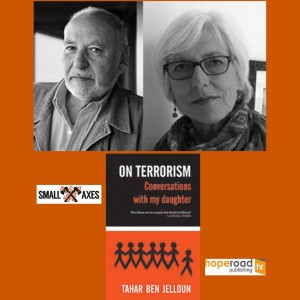
Thursday Sep 10, 2020
Bridging the Divide #10 | Interview: Tahar Ben Jelloun, On Terrorism
Thursday Sep 10, 2020
Thursday Sep 10, 2020
The Moroccan poet, novelist, essayist, and journalist, Tahar Ben Jelloun, is one of France's most celebrated writers. He has written extensively about Moroccan culture, the immigrant experience, human rights, and sexual identity.
With the trial opening this week in Paris over the January 2015 attacks on the offices of the satirical magazine, Charlie Hebdo, and a kosher supermarket that killed seventeen people, Terrorism: Conversations with My Daughter (translated by Aneesa Abbas Higgins) is a timely and essential read.
Can you briefly describe for our listeners the roots of terrorism in France, and what are its intentions?
How could the powers that be in France address the ongoing issue of police violence and toxic legacy of colonialism in an attempt to reassess its narrative about Islam, and its social policies?
Hear the answers to these questions and more in this insightful interview for curious minds.
Presented by Georgia de Chamberet | Produced by Rupert Such | Voice-over by Issa Naseri
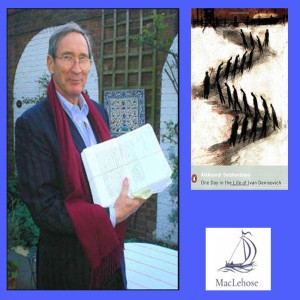
Thursday Sep 03, 2020
Thursday Sep 03, 2020
Christopher MacLehose brought WG Sebald, José Saramago, Haruki Murakami, Claudio Magris, Javier Marías, Jin Yong and many others to English-language readers. He is credited as having launched the bestselling genre of crime fiction in translation now known as “Nordic Noir”.
In 1984 you published Miss Smilla's Feeling for Snow by Peter Høeg, followed by Henning Mankell’s Kurt Wallander’s series in the 1990s a.k.a. “the father of Nordic noir”, Jo Nesbo in the 2000s, and Stieg Larsson’s The Girl with the Dragon Tattoo. Why do Scandinavians write such great crime fiction?
As a consistently passionate advocate of fine literature in translation throughout your career, what in your view makes a good translation, and what makes it last?
Tune in to find out more . . .
Presented by Georgia de Chamberet | Produced by Rupert Such
